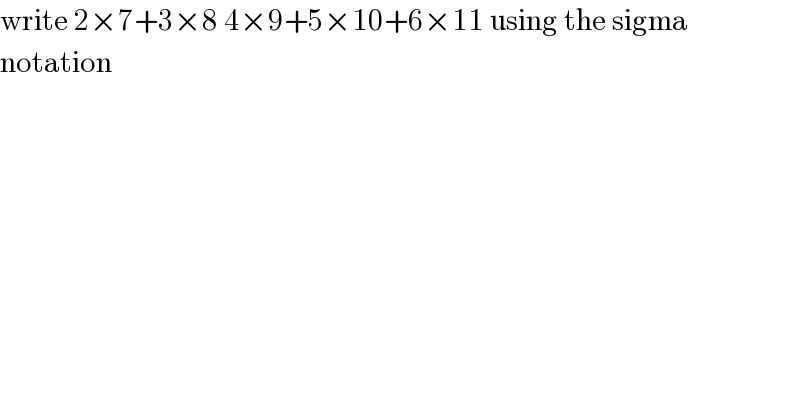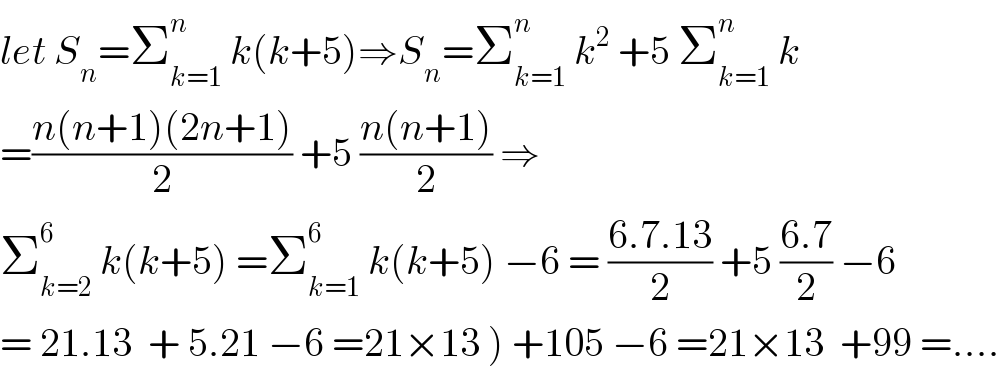
Question Number 43341 by pieroo last updated on 10/Sep/18

$$\mathrm{write}\:\mathrm{2}×\mathrm{7}+\mathrm{3}×\mathrm{8}\:\mathrm{4}×\mathrm{9}+\mathrm{5}×\mathrm{10}+\mathrm{6}×\mathrm{11}\:\mathrm{using}\:\mathrm{the}\:\mathrm{sigma} \\ $$$$\mathrm{notation} \\ $$
Answered by $@ty@m last updated on 10/Sep/18

$$\underset{{n}=\mathrm{2}} {\overset{\mathrm{6}} {\sum}}{n}\left({n}+\mathrm{5}\right) \\ $$
Commented by maxmathsup by imad last updated on 10/Sep/18

$${let}\:{S}_{{n}} =\sum_{{k}=\mathrm{1}} ^{{n}} \:{k}\left({k}+\mathrm{5}\right)\Rightarrow{S}_{{n}} =\sum_{{k}=\mathrm{1}} ^{{n}} \:{k}^{\mathrm{2}} \:+\mathrm{5}\:\sum_{{k}=\mathrm{1}} ^{{n}} \:{k} \\ $$$$=\frac{{n}\left({n}+\mathrm{1}\right)\left(\mathrm{2}{n}+\mathrm{1}\right)}{\mathrm{2}}\:+\mathrm{5}\:\frac{{n}\left({n}+\mathrm{1}\right)}{\mathrm{2}}\:\Rightarrow \\ $$$$\sum_{{k}=\mathrm{2}} ^{\mathrm{6}} \:{k}\left({k}+\mathrm{5}\right)\:=\sum_{{k}=\mathrm{1}} ^{\mathrm{6}} \:{k}\left({k}+\mathrm{5}\right)\:−\mathrm{6}\:=\:\frac{\mathrm{6}.\mathrm{7}.\mathrm{13}}{\mathrm{2}}\:+\mathrm{5}\:\frac{\mathrm{6}.\mathrm{7}}{\mathrm{2}}\:−\mathrm{6} \\ $$$$\left.=\:\mathrm{21}.\mathrm{13}\:\:+\:\mathrm{5}.\mathrm{21}\:−\mathrm{6}\:=\mathrm{21}×\mathrm{13}\:\right)\:+\mathrm{105}\:−\mathrm{6}\:=\mathrm{21}×\mathrm{13}\:\:+\mathrm{99}\:=.... \\ $$
